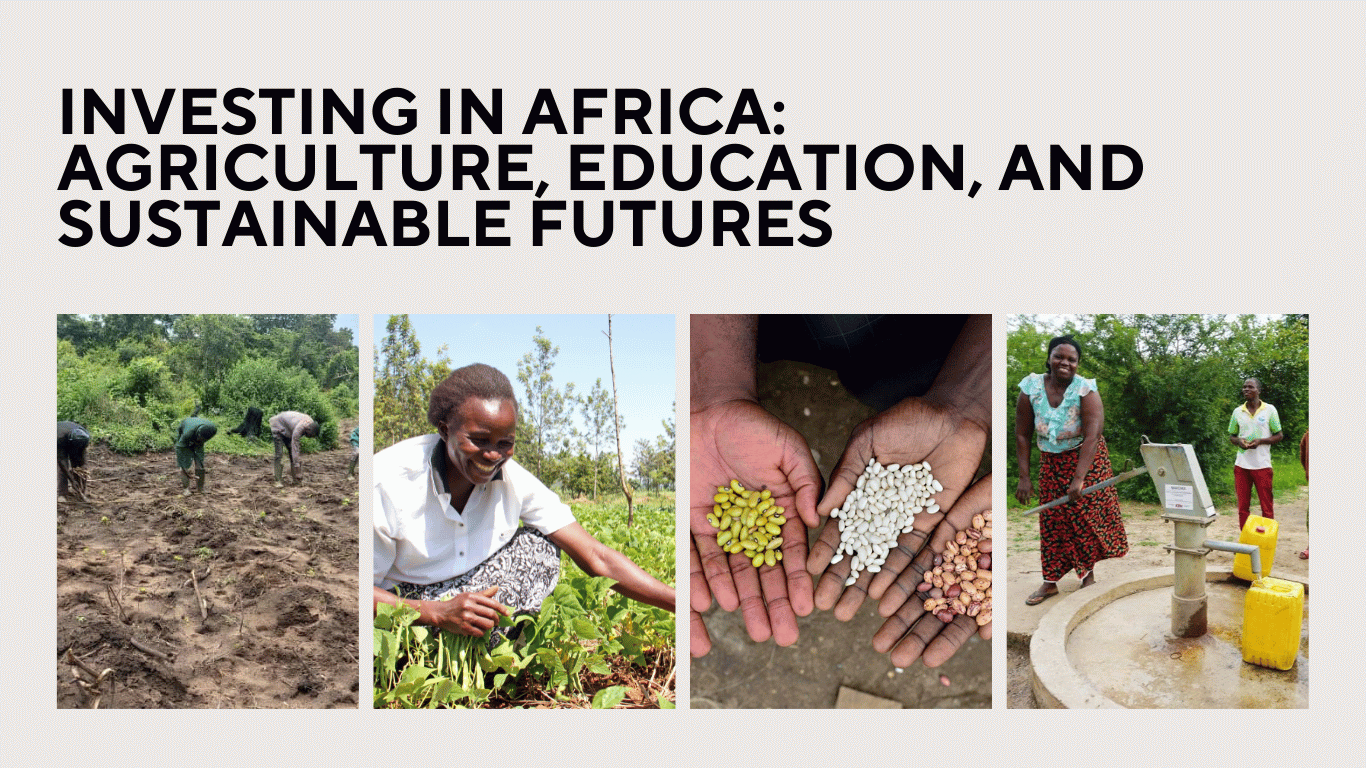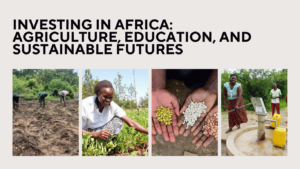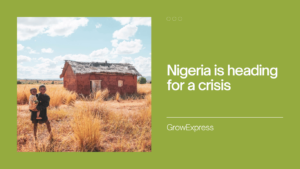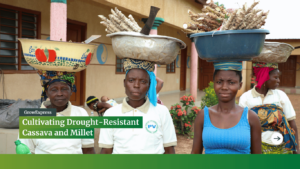The Promise and Potential of African Investments
As the world looks towards new frontiers for economic growth, Africa stands out with its rich history, unique climate, and vast unused arable land. Dr. Rainer Schreiber, a seasoned author and educator, delves into the intricacies of investing in Africa through a conversation with Thomas Wegener, the founder of GrowExpress Ltd. in Nigeria. Wegener’s initiative highlights the immense potential and critical importance of agricultural programs, training, and education for a sustainable future, food security, and peaceful coexistence.
Why Invest in Africa?
A Rich History and Abundant Resources
Africa, with its diverse cultures and rich history, offers unique opportunities for investments, particularly in the agricultural sector. Wegener emphasizes the continent’s vast tracts of fertile land and a young, educated, and ambitious population eager to transform their local economies. “If we can consciously offer a well-balanced mix of advanced education, bring in the latest technology while respecting local cultures, investments will sustainably multiply,” he asserts.
Leveraging Natural and Human Capital
The continent’s unique climate and soil conditions are ideal for various agricultural products. For instance, Africa has the potential to become a major supplier of pepper, with significant demand globally. Vietnam, India, and the US consume around 320,000 metric tons of pepper annually, representing approximately 40% of global consumption. Similarly, the pork market in Nigeria and Ghana alone is valued at approximately $3 billion yearly, with the potential to expand across 54 countries, tapping into a vast, largely untapped consumer market.
How Can Investments Drive Change?
The Role of AgriTech and Education
Wegener explains that combining Africa’s natural resources with impact investments in AgriTech can catalyze significant economic and social transformations. “Utilizing such excellent basics and combining those with value and impact investments in AgriTech will feed the African nations and bring employment, food security, and stable income, lifting whole populations out of poverty,” he states. This approach can help balance local inequalities, reduce migration pressures, and foster regional stability.
Practical Examples and Initiatives
GrowExpress Ltd. exemplifies this model through continuous agricultural training programs. Collaborating with esteemed institutions like the International Institute of Tropical Agriculture (IITA) and the German Corporation for International Cooperation (GIZ), GrowExpress provides farmers with the latest knowledge and technologies tailored to local conditions. Recent training sessions have focused on single-parent women from Oyo State, educating them on the cassava and maize value chain. These programs cover modern seed systems and economic weed management, with real business cases presented by experts from IITA and the National Agricultural Seed Council (NASC).
The GrowExpress Model: Training and Empowerment
Block Farms and Modern Techniques
GrowExpress works with farmers on large-scale block farms, enabling each farmer to cultivate specific areas within the provided land. This model ensures access to modern equipment, knowledge exchange, and a robust logistics chain. Additionally, the company guarantees the purchase of produce, with on-site processing to enhance the value of basic food products and achieve higher sales prices.
Impact on Local Communities
The tangible results of these efforts are impressive. Local communities experience significant improvements in various aspects of life, from enhanced sanitation and financial inclusion through bank accounts to increased participation in public life via internet connectivity. Children now have better access to education, and food security has become more stable and reliable.
Tangible Results and Future Prospects
Uplifting Communities
“The outcomes are breathtaking,” Wegener remarks. “Improved sanitation, participation in public life, financial inclusion, access to schooling, and a stable food supply have transformed village life.” These improvements underscore the power of targeted investments in agriculture and education.
Addressing Global Challenges
Investing in Africa’s agricultural sector addresses multiple global challenges, from food security to economic stability. By empowering local populations through education and technology, these investments can create a ripple effect, fostering economic growth, reducing poverty, and promoting social harmony.
Conclusion: A Call to Action
Investing in African agriculture and education is not just about economic returns; it is a commitment to a more equitable and prosperous world. As Wegener aptly puts it, “Investing in people and African agriculture ensures you are doing good for a more equal and better world while being economically very successful in the short, mid, and long term.” The story of GrowExpress Ltd. in Nigeria serves as a compelling example of how thoughtful investments can drive sustainable development and create lasting positive change.




